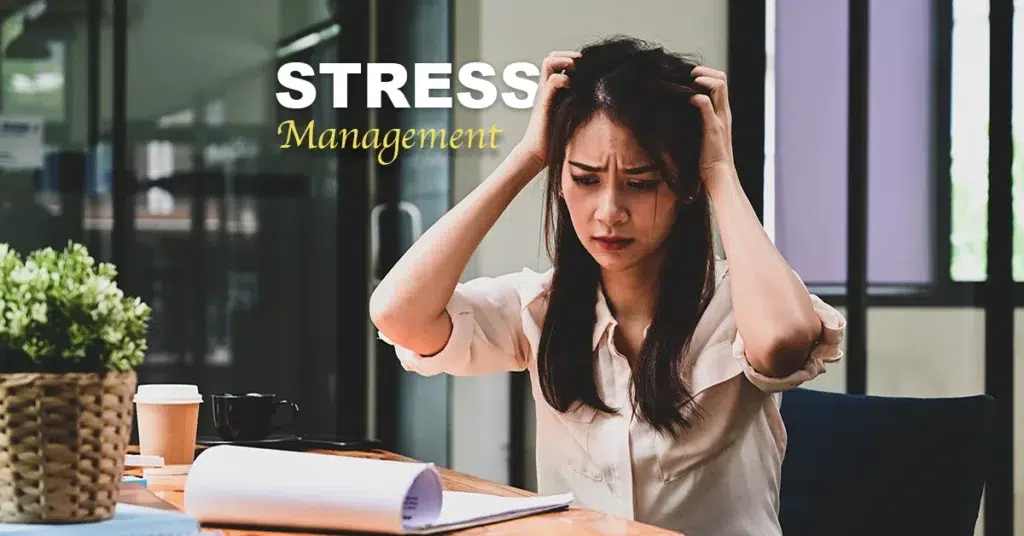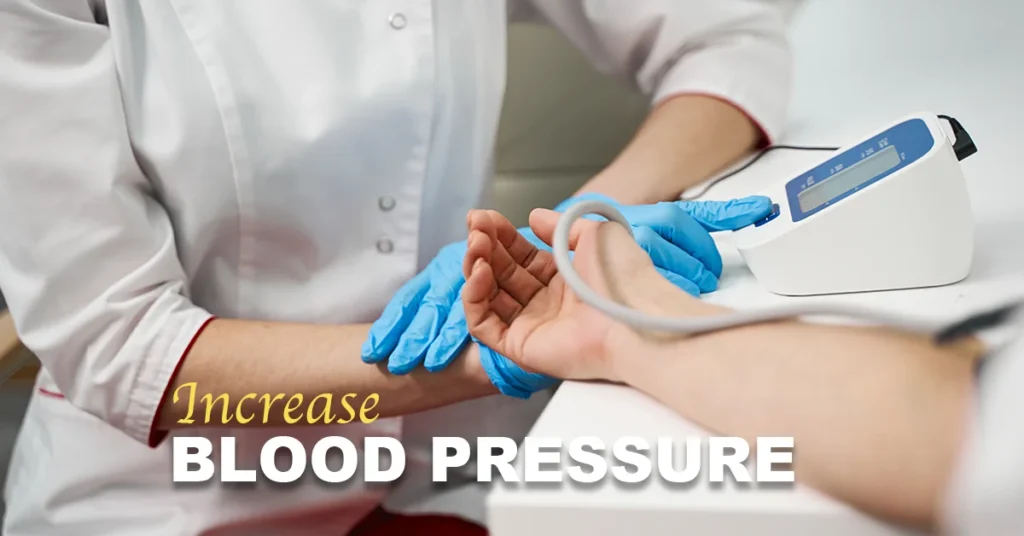
In our fast-paced world, stress has become a ubiquitous part of life, affecting individuals across all ages and walks of life. The term “stress,” often tossed around in casual conversation, actually encompasses a complex physiological and psychological response to perceived challenges or threats. Understanding stress, its origins, and its impacts is not merely an academic exercise; it’s a crucial aspect of maintaining and improving our well-being in the modern era of stress management.
Stress, at its core, is the body’s way of reacting to a challenge or demand. In brief moments of danger, stress can be beneficial – mobilising heightened energy and focus, for instance, to meet a tight deadline or to avoid an accident. This acute stress response, often referred to as the “fight or flight” reaction, involves a series of hormonal and physiological changes that prepare the body to face a threat or flee from it. However, when stressors are always present and one feels under constant assault, this fight or flight response can backfire, leading to chronic stress.
In the contemporary landscape, stressors extend beyond immediate physical threats, encompassing emotional and psychological pressures from work, relationships, financial uncertainties, and societal expectations. The omnipresence of digital technology also means we’re constantly connected, leaving little room for the quietude necessary for our mental health.
Understanding and managing stress is thus not just about coping with life’s pressures; it’s about recognizing the intricate dance between our environment and our physiological responses. It involves identifying the triggers that push us into a state of stress, understanding how our bodies and minds react to stress, and, most importantly, learning effective stress management techniques. Through this understanding, we can not only mitigate the negative impacts of stress on our health but also harness stress in ways that can improve our productivity, resilience, and overall quality of life.
Understanding Stress

Biological Foundations
The biological underpinnings of stress involve a sophisticated system designed to protect and support survival. Central to this system is the stress response, often characterized by the “fight or flight” mechanism, which primes the body for action.
When we perceive a threat, our body’s hypothalamus prompts the adrenal glands to release stress hormones, such as cortisol and adrenaline. These hormones increase heart rate, elevate blood sugar levels, and divert blood to essential organs, preparing the body to face the threat or flee to safety. This response, while crucial for survival in acute scenarios, can lead to health issues if activated too frequently or for too long.
Types of Stress
Stress manifests in various forms, each with its own set of triggers and implications for health. Acute stress arises from short-term challenges, provoking a quick and intense reaction. On the other hand, chronic stress develops over time, stemming from ongoing pressures that persist beyond their initial cause. Eustress, or positive stress, refers to stress that motivates or focuses energy, such as the excitement before a performance. Distress, the negative counterpart, includes stress that causes anxiety or concern and can be detrimental to health.
Causes of Stress
The triggers of stress are diverse, spanning environmental, psychological, and societal factors. Environmental stressors can range from natural disasters to everyday nuisances like noise pollution. Psychological factors involve personal challenges, such as coping with illness or navigating complex relationships.
Societal pressures might include job expectations, financial responsibilities, or social norms. Each individual’s perception of these stressors greatly influences their stress response, highlighting the subjective nature of stress experiences.
Understanding the intricate dynamics of stress is essential for recognizing its presence in our lives and adopting effective management strategies. By acknowledging the biological bases, the different types of stress, and the varied causes, individuals can better navigate the challenges posed by stress, leading to healthier and more fulfilling lives. Stress can significantly impact an individual’s everyday life by affecting their physical and mental health, relationships, and ability to manage daily tasks.
The Impact of Stress on Health

Physical Health
Stress triggers a cascade of physiological responses that, while beneficial in short bursts, can be detrimental when sustained over time. The continuous release of stress hormones like cortisol and adrenaline can lead to a host of physical health issues. For example, stress can increase blood pressure and heart rate, elevating the risk of cardiovascular diseases. It can also suppress the immune system, making the body more susceptible to infections and illnesses.
Furthermore, stress affects the digestive system, potentially causing symptoms such as heartburn, acid reflux, and even irritable bowel syndrome (IBS). Maintaining a healthy diet can help manage stress levels effectively by improving mood and energy.
Mental Health
The psychological impacts of stress are equally significant. Chronic stress can lead to anxiety, depression, and mood disorders. It disrupts sleep patterns, leading to insomnia and a general reduction in sleep quality, which in turn affects overall health and well-being. Stress can also impair cognitive functions, including attention, memory, and decision-making processes, making daily tasks and decision-making more challenging.
Long-term Consequences
The long-term consequences of unmanaged stress are far-reaching, potentially leading to chronic health conditions such as hypertension, heart disease, diabetes, and mental health disorders. Moreover, it can diminish life quality, affecting relationships, productivity, and overall happiness.
Assessing Stress

Stress Indicators
Identifying stress involves recognizing its indicators, which can be psychological (mood changes, irritability, feeling overwhelmed) and physical (headaches, muscle tension, fatigue). Psychological assessments, including questionnaires and interviews, can help determine the levels of stress and its sources. Biological markers, such as levels of stress hormones in the blood, offer objective measures of stress.
Self-Assessment Tools
Self-assessment tools, including stress inventories and lifestyle evaluations, enable individuals to identify their stressors and how they react to them. These tools often assess various aspects of life, such as work, relationships, and health, to pinpoint areas of significant stress. By understanding one’s unique stressors and responses, individuals can tailor stress management strategies to their needs.
Assessing the impact of stress on health and effectively measuring stress levels are pivotal in devising effective interventions. Acknowledging the comprehensive nature of stress’s effects helps underline the importance of proactive stress management for maintaining optimal health and well-being.
Stress Management Techniques

Lifestyle Modifications
Making healthy lifestyle choices is foundational to stress management. A balanced diet rich in nutrients supports the body’s stress response system, while regular exercise and physical activity, such as aerobic activities and yoga, helps reduce stress hormones and stimulate the production of endorphins, the body’s natural painkillers and mood elevators. Prioritising sleep is also crucial, as sufficient rest enhances the ability to cope with stress.
Psychological Strategies
Psychological techniques are essential to relieve stress by addressing the mental and emotional aspects of it. Cognitive-behavioural therapy (CBT) helps individuals develop coping strategies to change negative thought patterns that contribute to stress.
Mindfulness and meditation practices encourage living in the moment and observing thoughts and feelings without judgement, reducing stress and improving emotional regulation. Stress inoculation training (SIT) prepares individuals to manage stress by gradually exposing them to stressors in a controlled environment, enhancing their coping mechanisms over time.
Time Management
Effective time management is key to achieving stress relief and reducing stress related to workload and deadlines. This includes prioritising tasks, setting achievable goals, and breaking projects into manageable steps. Avoiding procrastination and learning to say no to additional responsibilities when overwhelmed are also critical strategies for keeping stress at bay.
The Role of Social Support in Stress Management

Family and Friends
The emotional support provided by family and friends during stressful times can be immensely beneficial. It offers a sense of belonging and being understood, which can alleviate feelings of isolation and stress. Engaging in social activities or simply having someone to talk to about one’s worries can provide relief and perspective.
Support Groups
Support groups offer a unique space where individuals can share their experiences and coping strategies with others facing similar challenges. This can foster a sense of community and provide access to valuable advice and encouragement.
Professional Help
Sometimes, the assistance of mental health professionals is necessary to manage stress effectively. Therapists can provide personalised strategies and tools to deal with stress, while psychiatrists may offer medications to help control stress symptoms in severe cases.
Implementing a combination of these stress management techniques and leveraging the power of social support can significantly improve an individual’s ability to manage stress effectively, leading to improved health and well-being.
Advanced Stress Management Techniques

Biofeedback
Biofeedback is a technique that trains people to control physiological processes such as heart rate, muscle tension, and blood pressure. By using sensors that provide feedback about the body’s state, individuals can learn to make conscious adjustments to promote relaxation and reduce stress.
Neurofeedback
Similar to biofeedback, neurofeedback focuses on the brain’s electrical activity. It assists individuals in understanding and regulating their brain waves to improve focus, reduce anxiety, and enhance their ability to handle stress.
Relaxation Techniques
Progressive Muscle Relaxation (PMR) and Deep Breathing exercises are powerful tools in the stress management arsenal. PMR involves tensing and then relaxing each muscle group, promoting physical and mental relaxation. Deep Breathing techniques, such as diaphragmatic breathing, help slow the heartbeat and lower blood pressure, creating a feeling of calm.
Creating a Personal Stress Management Plan

Identifying Personal Stressors
The first step in creating a personalised plan is to identify the specific stressors in one’s life. This could include work deadlines, financial worries, or relationship issues.
Choosing Appropriate Management Techniques
Based on the identified stressors, individuals can select the stress management techniques that best suit their needs, whether they are lifestyle changes, psychological strategies, or advanced techniques like biofeedback.
Monitoring and Adjusting the Plan
A stress management plan should be dynamic, with regular reviews and adjustments as necessary. What works well at one time may need to be adapted as situations and stressors change.
Conclusion

Understanding and managing stress is not a one-time task but a continuous process. By comprehensively exploring the nature of stress, its impacts, and the multitude of management techniques available, individuals can equip themselves with the knowledge and tools necessary to navigate the complexities of stress.
Embracing both foundational and advanced strategies, while also recognizing the importance of a supportive social network, enables a holistic approach to stress management. Ultimately, this journey towards effective stress management not only improves physical and mental health but also enhances the overall quality of life, allowing for a more balanced and fulfilling existence.




